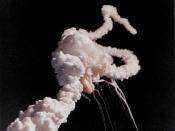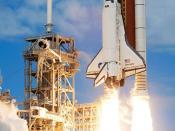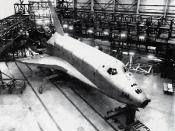Every spectacular spacecraft failure proves the same thing: Space travel is a tough, expensive, risky business. Computers crash, rockets explode, probes miss planets and satellites smack into the atmosphere. And then there are human tragedies -- the Challengers, the Columbias.
Yet for every glitch, space travelers find a fix, for every disaster, they find a renewed determination. Sometimes the solutions happen in mid-mission, sometimes, they aren't found until the accident review board finishes its work.
There are a lot of factors responsible for the disasters in space. There are physiological challenges of space sickness and bone loss, and the psychological challenges of boredom and claustrophobia and of mismatched teammates stuck together in inescapably tight quarters. Then there are the technical difficulties -- balky computers, leaky space suits, tools that don't work well in zero gravity.
The history of space travel is marred by disaster, frequently reminding the world that it's still a dangerous frontier.
Since the former Soviet Union launched Sputnik in 1957, the milestones and triumphs have mixed with tragedies and near misses. Until the Columbia disaster, the most deadly incident came 17 years ago when the space shuttle Challenger exploded after liftoff.
A time line of space tragedies, setbacks, near misses and major milestones:
March 23, 1961 -- Soviet cosmonaut Valentin Bondarenko was training in a pressure chamber as part of pre-flight preparations. A fire ignited and consumed all the oxygen in the chamber, suffocating Bondarenko.
April 12, 1961 -- Soviet cosmonaut Yuri Gagarin became the first man in space, but nearly died when his capsule did not separate properly from booster rockets.
July 22, 1962 -- In an attempt to send the United States' Mariner 1 to Venus, the launch rockets veered off-course after takeoff and the craft had to be destroyed.
Oct. 24, 1962 -- The...


